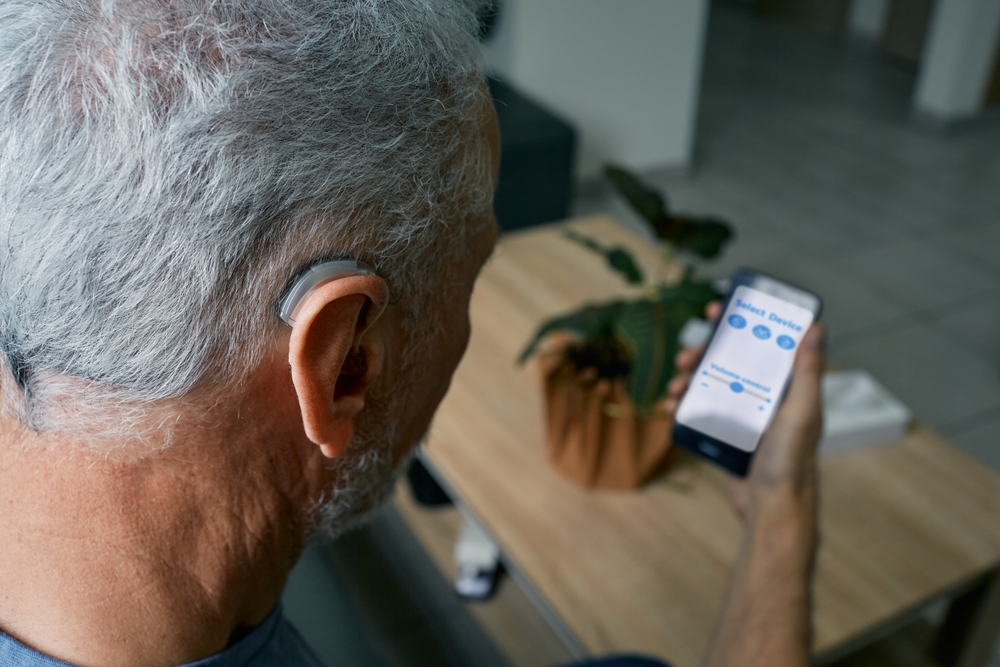Treating your hearing loss can be good for your brain. Numerous studies have linked hearing aids to a lower incidence of cognitive decline, anxiety, and depression. A 2018 study by a team of researchers out of the University of Manchester, for example, looked at a group of more than 2000 participants over the course of nearly twenty years (1996 to 2014). The attention-getting findings? Treating your hearing loss can slow dementia by up to 75%.
That is not a small number.
That’s a head-turning kind of number. And yet, it’s not all that surprising. That’s not to take away from the importance of the finding, of course–that kind of statistical correlation between hearing loss treatment and the fight against dementia is important and eye-popping. But it aligns well with what we already know: treating your hearing loss is vital to slowing cognitive decline as you age.
What does this research on dementia mean for me?
Scientific studies can be confusing and contradictory (should I eat eggs, should I not eat eggs? What about wine? Will drinking wine help me live longer?). The reasons for that are lengthy, varied, and not all that relevant to our discussion here. Because here’s the bottom line: this new research is yet another piece of evidence that suggests untreated hearing loss can lead to or exacerbate cognitive decline–now including dementia.
So what does this mean for you? In some ways, it’s pretty simple: if you’ve been noticing any possible signs of hearing loss, you should go see a hearing specialist soon. And, if the hearing specialist recommends you wear a hearing aid, you should definitely start wearing that hearing aid as directed.
Hearing aids help prevent dementia – When you wear them regularly
Unfortunately, not everyone falls right into the habit of wearing a prescribed pair of hearing aids. This can be for a variety of reasons:
- The hearing aid doesn’t feel like it fits well (problems with fit can be addressed by your hearing specialist).
- The hearing aid doesn’t feel like it works as advertised (calibration problems can also be addressed by your hearing specialist).
- Voices are difficult to make out (in some cases, it takes time for your brain to adjust to discerning speech again).
- You’re concerned about how hearing aids look (many hearing aid styles are designed to be minimally visible).
Clearly wearing your hearing aids are important to your overall health. If you’re struggling with any of the above, go back to your hearing specialist for an adjustment. Sometimes the solution will take time or patience, but working with your hearing professional to ensure your hearing aids work for you is generally part of the process.
And in light of these new findings, treating your hearing loss is more important than ever. Hearing aids are protecting your hearing health and your mental health–so it’s important to take that treatment seriously.
What’s the link between hearing aids and dementia?
So why are these two conditions–hearing loss and dementia–even linked in the first place? Scientists themselves aren’t exactly sure (after all, the study was designed to find correlation not cause–with science, it’s one variable at a time!).
But there are some theories. Many people with hearing loss, over time, start to self-isolate. They avoid social situations where they have difficulty hearing (for example there’s background noise or if they can’t hear on the phone they avoid using it). Many researchers feel that’s part of the problem: that social isolation can exacerbate hearing loss and cognitive decline issues.
Another theory is that your brain needs stimulation and activity to stay nimble, and auditory signals are part of that stimulation.
Hearing aids help your brain
Long story short, your hearing aid helps you hear better. And that can help keep your brain active, providing a more robust natural defense against dementia and cognitive decline.



